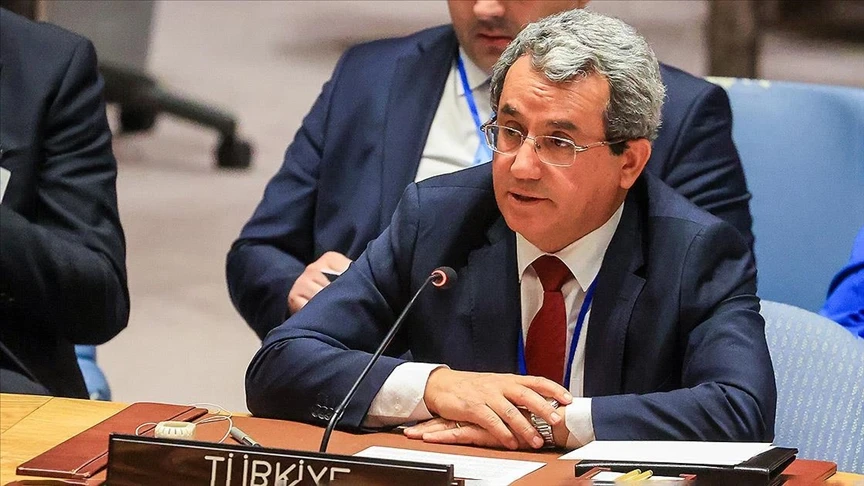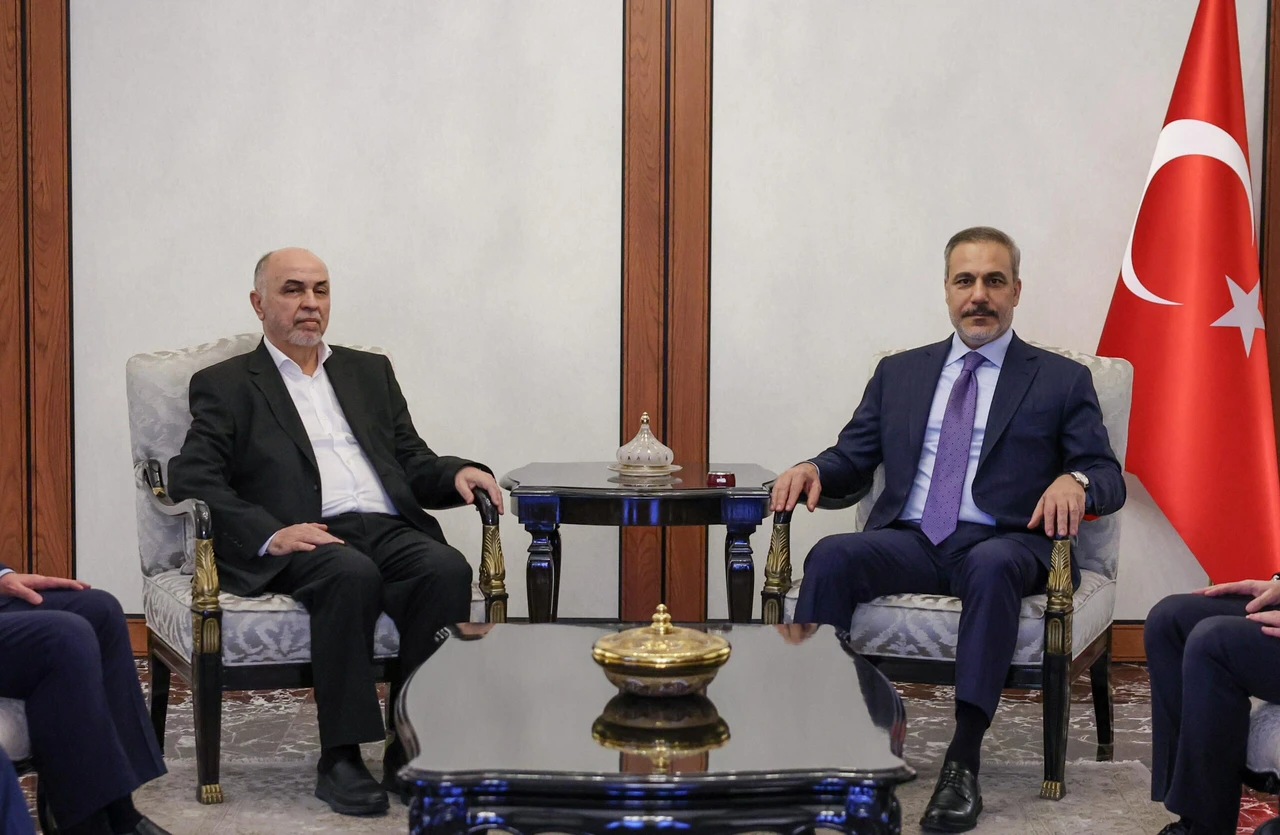UN Security Council hears Türkiye’s vision for Syrian conflict resolution
 Türkiye's Ambassador to the U.N. Ahmet Yildiz. (AA Photo)
Türkiye's Ambassador to the U.N. Ahmet Yildiz. (AA Photo)
Türkiye’s Ambassador to the United Nations, Ahmet Yildiz, presented a vision for ending Syria’s protracted conflict during a UN Security Council meeting on Wednesday. Yildiz outlined Türkiye’s stance on achieving a resolution to the 13-year crisis, calling for a governance system that encompasses all Syrians and maintains Syria’s territorial integrity.
In his address, Yildiz described the current situation in Syria as one of “grave and complicated turmoil” and emphasized that a sustainable solution requires a unified Syria governed by the will of its people. He underscored the necessity of a political process to address the conflict’s complexities.
“The only permanent solution lies in a Syria governed by the will of all Syrians, with its territorial integrity and unity preserved,” Yildiz stated. He called on all involved parties to establish clear priorities for a lasting settlement and to work towards ending the “spiral of regional violence.”
Key elements of Türkiye’s proposed approach include revitalizing the political process through the Constitutional Committee, facilitating safe refugee returns, combating what Yildiz termed “separatist terrorism,” and ensuring the continuous delivery of humanitarian aid. The Constitutional Committee, established through an agreement between the Syrian government and the opposition Syrian Negotiations Commission, is designed to support a Syrian-led political process.
Yildiz also voiced concerns about recent developments in Deir ez-Zor, criticizing support for what he termed terrorist groups, including the PKK, YPG, and their offshoot, the Syrian Democratic Forces (SDF). He claimed these groups are jeopardizing Syria’s unity by oppressing local populations and restricting their access to essential resources.
He criticized these groups’ separatist agenda and their actions under the pretext of combating Daesh, citing their “social contract” and “local election” attempts as evidence.
Regarding the humanitarian crisis, Yildiz advocated for needs-based, predictable cross-border access for aid and urged the international community to uphold funding commitments and fulfill pledges.
“We need a recalibrated focus from the international community with broader coordination and a holistic approach for Syria,” Yildiz concluded. He emphasized that genuine national reconciliation, reflecting the expectations of all Syrians, is vital for resolving the ongoing conflict.



